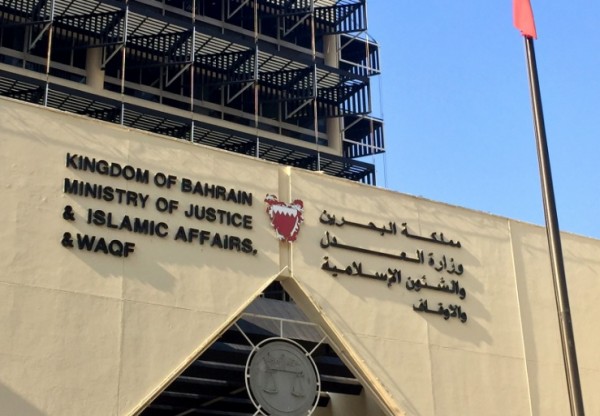15 May 2018 – Bahrain’s High Criminal Court today revoked the citizenship of 115 people amid reports of torture and due process abuses in an unfair mass trial of 138 defendants. Americans for Democracy & Human Rights in Bahrain (ADHRB), the Bahrain Institute for Rights and Democracy (BIRD), and the European Centre for Democracy and Human Rights (ECDHR) strongly condemn the unlawful deprivation of nationality and raise grave concerns about allegations of torture and other violations of fair trial standards.
The court issued the denaturalization order as part of its verdict in the mass trial of 138 defendants accused of committing terror offenses through participation in an organization referred to by the Bahraini government as the “Zulfiqar Cell.” In addition to citizenship revocation, 53 of the defendants were sentenced to life in prison; three were sentenced to 25 years; one was sentenced to 10 years; 15 were sentenced to seven years; 37 were sentenced to five years; and six were sentenced to three years. The court acquitted 23 of the defendants. Many of those denaturalized were likely rendered stateless, contravening international law.
According to ADHRB’s documentation, there are multiple reports that defendants suffered severe due process violations and inhumane treatment. One defendant was arrested after police and Ministry of Interior (MOI) officers raided his home without a warrant. He was taken to the MOI’s Criminal Investigations Directorate (CID) for interrogation, where he was then held for two months and subjected to physical and mental torture. During the interrogation authorities insulted him, beat him, and subjected him to electric shocks. The defendant also experienced torture while being held in the Dry Dock Detention Center, including extended solitary confinement, forced nudity, and having objects thrown at him. Another defendant was held in interrogation for two weeks following his arrest where he was beaten in the head, neck, and stomach; subjected to electrical shocks; submerged in cold water; deprived of sleep; and repeatedly threatened. At least one defendant provided a confession to end the torture, and this coerced confession was later used in some of the legal proceedings against him. Some defendants were also subjected to enforced disappearance after their initial arrest.
The cases described above are indicative of the broader context of human rights abuses in which this trial occurred. At least two individuals reported that they were unable to meet with legal counsel during their detention, and multiple hearings were held in the absence of many of the defendants, including today’s ruling, which no defendants attended. Further, it has been reported that some of the individuals sentenced today have been held in pre-trial detention since their initial arrest in November 2015.
Today’s ruling also constitutes the largest mass denaturalization of Bahrainis since 2012 – with 115 defendants denaturalized – and makes 2018 one of the worst years for citizenship revocations in the kingdom’s history. As many as 719 Bahrainis have been deprived of nationality in the last six years, with at least 213 in 2018; 156 in 2017; 90 in 2016; and 208 in 2015. At the current rate, Bahrain is on track to have over 500 cases of denaturalization by the end of 2018.
The authorities have largely used this practice as a means of reprisal against civil society activists, opposition politicians, human rights defenders, journalists, and other individuals they deem critical of the government. They have also disproportionately targeted members of the kingdom’s marginalized Shia Muslim majority community for denaturalization, gradually altering the demographic makeup of the country. These abusive policies are aggravated by gender-based discrimination in Bahrain’s nationality legislation that prevents Bahraini women from directly passing their citizenship on to their children, expanding the deleterious effects of a denaturalization order against a man to his entire family.
From the original arrests to today’s ruling, the Bahraini government has violated its international obligations and norms under the Universal Declaration of Human Rights (UDHR), the International Covenant on Civil and Political Rights, (ICCPR) and the Convention Against Torture and Other Cruel, Inhuman or Degrading Treatment or Punishment (CAT). The warrantless arrests, prolonged pre-trial detention, in absentia hearings, and lack of access to legal counsel have culminated in an unfair trial in violation of the UDHR (Article 9 and 10) and the ICCPR (Articles 9 and 14). These fair trial violations are worsened by the use of a confession obtained through torture, in violation of all three instruments, particularly Article 15 of the CAT. Finally, the mass denaturalization is in violation of the right to nationality included in Article 15 of the UDHR.
“Bahrain’s systematic use of mass trials marred by horrific torture allegations and lack of due process is cause for grave concern – especially when the outcome is a mass denaturalization that clearly violates international standards,” said Husain Abdulla, Executive Director of ADHRB. “Bahrain’s judicial system must adhere to fair trial norms, investigate allegations of torture, and demonstrate transparency. These abuses cannot continue, and the international community needs to step up and hold Bahrain accountable.”
We in the Bahraini NGO community call on Bahrain’s key international partners, including the United States, the United Kingdom, and the European Union, to likewise condemn this miscarriage of justice and call for the release of all prisoners until they can be guaranteed a fair trial in accordance with international standards.
Editor’s Note: The original version of this statement incorrectly indicated that 25 defendants were sentenced to seven years in prison; the correct number is 15 defendants sentenced to seven years in prison.





